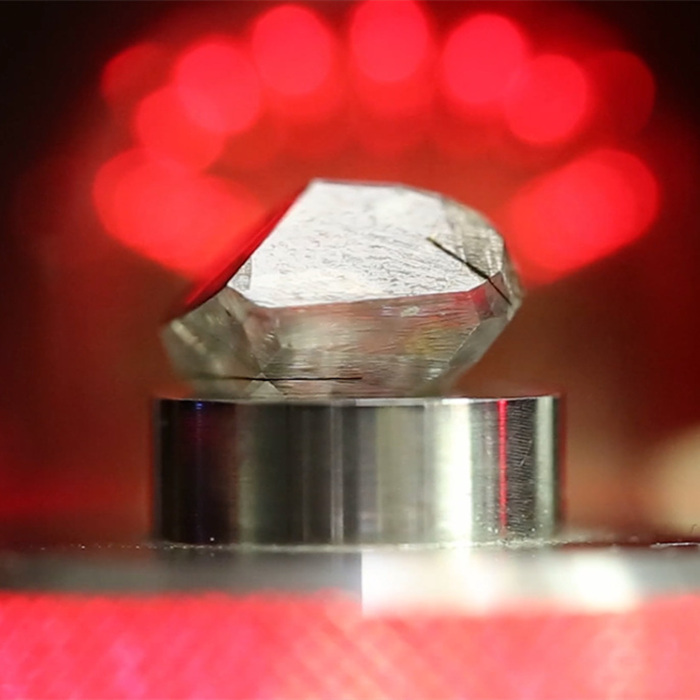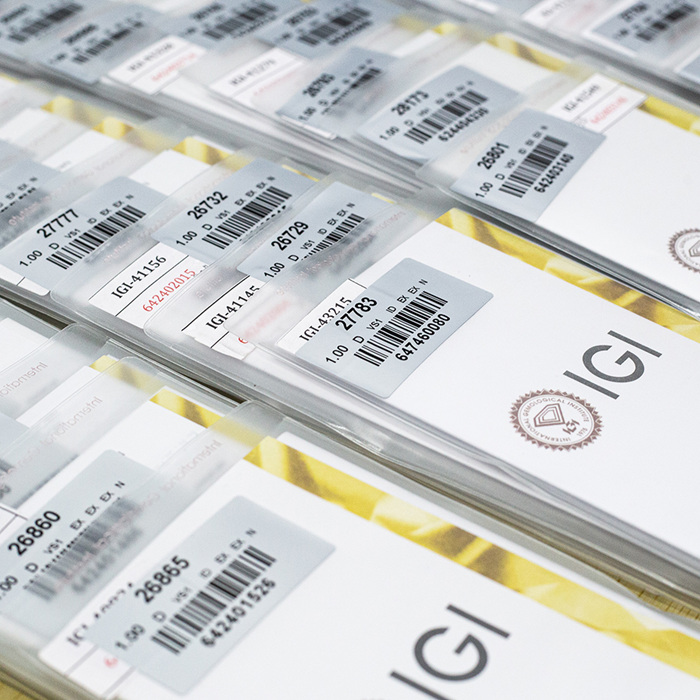How to Choose a Lab Diamond Manufacturer for Your Project
Introduction
Lab grown diamonds exert a relatively lower adverse impact on the environment and are more budget-friendly compared to mined diamonds, thus having gained tremendous popularity. These gems, nearly indistinguishable from natural ones, present a desirable alternative that aligns perfectly with modern environmental and ethical concepts. Nevertheless, in order to ensure quality, customization, and transparency during the production process, it is of utmost importance to select the appropriate lab diamond manufacturer. Given consumers' increasing concern about the origins of the products they purchase, this choice will not only influence the final product but also determine how the entire process is regarded in terms of integrity.

Key Factors in Selecting a Lab Diamond Manufacturer
1.Reputation & Industry Expertise
The reputation and industry expertise of a lab grown diamond factory are of vital importance. It is essential to evaluate their reputation by examining customer testimonials, reviews, and remarks from previous projects. Look for manufacturers with an impressive track record of accomplished projects and extensive years of experience in the industry. Since proficient producers are well-versed in the intricacies of diamond production and adept at handling any issues that may arise, their expertise often leads to enhanced quality control. By leveraging resources such as industry journals, online forums, and customer testimonials that offer insights into their reliability and service quality level, it can be made easier to determine whether a manufacturer is a suitable choice for your project.
2.Quality Control and Certifications
Throughout the gemstone industry, certification is absolutely indispensable for ensuring that a diamond meets quality standards and guaranteeing that buyers receive authentic, well-crafted goods. The Gemological Institute of America (GIA) and the International Gemological Institute (IGI) are two of the most highly respected organizations in this field, renowned for their rigorous criteria when assessing lab created diamonds. The above-mentioned certificates offer an objective evaluation of a diamond's quality by examining crucial characteristics such as cut, color, clarity, and carat weight. Buying from companies that highly prioritize certification enhances transparency and trust, allowing customers to make confident and informed decisions. Undoubtedly, clearly defining the certification requirements for lab grown diamonds is essential for building customer confidence and ensuring that these stones meet quality standards.
3. Manufacturing Process & Technology
Chemical Vapor Deposition (CVD) and High-Pressure High-Temperature (HPHT) are the two leading techniques employed in the production of man made diamonds. The HPHT technique is highly regarded for generating diamonds with outstanding durability and vivid colors, as it mimics the natural diamond production process. However, the more advanced CVD process allows for greater precision in shaping, coloring, and refining the purity of diamonds by converting carbon gases into a diamond structure. It is of utmost importance to thoroughly understand a manufacturer's production processes since each one has an impact on the final properties of the diamond. Thanks to the additional options offered by manufacturers who are proficient in both HPHT and CVD, you can obtain the perfect diamonds to meet your specific requirements.
4. Customization Capabilities
The ability to customize lab grown diamonds is one of their most fascinating advantages. Unlike mined diamonds, which are restricted by natural factors, lab grown diamonds can be customized to meet specific design and project requirements. The capacity for personalization makes these diamonds distinctive, whether a project demands a particular color, carat weight, or unique shape. This versatility not only provides a wider range of options but also imparts a unique touch to each piece. Manufacturers that focus on customization work closely with customers to ensure that the diamond's size, shape, color, and clarity precisely match the intended design. This feature is especially valuable for custom or high-end projects where precision and originality are crucial.
5. Sustainability and Ethical Standards
Identifying a company that is committed to sustainable practices is essential as ethical and environmental concerns gain prominence. Although lab created diamonds generally have a lesser impact on the environment compared to mined ones, different producers may have varying sustainability standards. Selecting a business that upholds ethical conduct and environmentally friendly methods, such as reducing carbon emissions or utilizing renewable energy, can significantly enhance the value of the project. Ethical standards ensure that neither natural resources nor labor are exploited, thus aligning the project with socially conscious ideals.

Practical Steps to Evaluate and Select a Manufacturer
▶Requesting Samples and Prototypes:
One of the most effective ways to evaluate a lab grown diamond jewelry manufacturer is to ask for samples. A sample provides a tangible demonstration of the quality, craftsmanship, and authenticity of the manufacturer's products. When assessing a sample, consider aspects such as the stone's clarity, color quality, and the precision of its cut. Through this hands-on experience, you can gauge the diamond's compliance with the parameters of your project. Moreover, examining a sample can showcase the manufacturer's ability to meet customization requirements, which aids in the decision-making process.
▶Visiting or Reviewing Facilities (If Possible)
If possible, a more comprehensive understanding of the manufacturer's operations can be obtained by arranging an in-person or virtual tour of their facilities. During a tour, you can closely observe the facility's machinery, production process, and quality control measures. Visits to the company's site can also disclose details regarding its commitment to ethical practices and environmental sustainability. Manufacturers are more prone to consistently produce high-quality diamonds when equipped with modern machinery and cutting-edge technologies. In case an in-person visit isn't viable, many manufacturers offer virtual tours that provide a similar experience. This enables you to assess their setup, operations, and manufacturing standards remotely.
▶Comparing Prices and Value
Although price is a vital factor, it is essential to look beyond the numbers. The quality, customization options, and manufacturing process can all have an impact on the price of a synthetic diamond. Some manufacturers may offer lower costs, but they might compromise on quality or customization possibilities. Therefore, you can find the best value for your investment by comparing prices from different manufacturers and understanding what each package entails. Select a producer who provides a clear breakdown of the expenses associated with each aspect of the diamond and strikes a proper balance between quality and price. This approach will ensure that you obtain a diamond that meets the requirements and standards of the project while also getting a reasonable price.

Conclusion
Choosing the optimal lab diamond manufacturer demands careful consideration and a thorough evaluation of numerous factors, such as reputation, certifications, ethical standards, and customization options. A manufacturer that excels in these aspects will not only guarantee the diamond's quality but also enhance the integrity of the project and align with the current demands of sustainability and ethical accountability. If you pick a reputable and skilled manufacturer, your project will shine and deliver both quality and satisfaction. In lab diamond production, with the right collaboration, a simple idea can be turned into an outstanding final product, meeting the expectations of both your clients and yourself. Please contact Messi Jewelry for more information!

Terms & Policies
Tel.: +86 15878079646
Email: info@messijewelry.com
WhatsApp:+86 15878079646
Company Address: Room B5, B6, B7, B8, Building 2, No. 137, Xinxing 2nd Road, Wuzhou, GuangXi, China.
One of the experienced lab grown diamond manufacturers, Messi Jewelry is always working for your satisfaction, welcome to negotiate business cooperation with us.





































